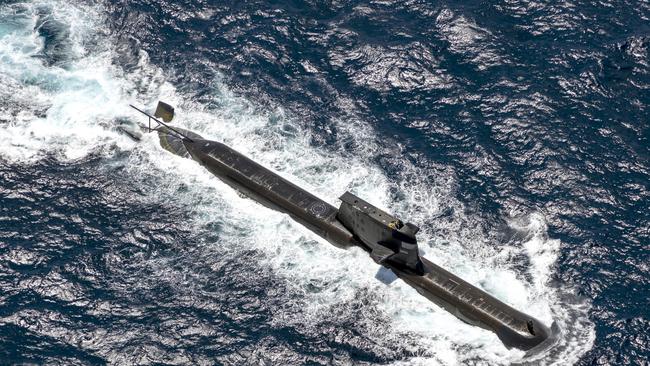Australia’s defence industry not prepared for Indo-Pacific war as risk, Ai Group, ANU report warns
With Australia facing the growing threat of conflict in its own backyard, a new report has found the nation’s defence industry is ill-equipped should a war occur.

Australia’s defence industry is ill-equipped to respond to war in the Indo-Pacific, despite a growing risk of conflict with China in its own backyard, a scathing new report has found.
A report co-authored by the Australian Industry Group and the Australian National University’s Strategic and Defence Studies Centre (SDSC) has argued local defence industry settings lack purpose and are not reflective of the growing security threat.
“Australia faces the most challenging strategic circumstances in several generations. The risk of a major conflict in the Indo-Pacific — likely involving great powers — is real,” the report warns.
“However, the current policy paradigm reflects a world where substantial warning time (before a conflict) was assumed, and the threat environment was less specific.”
“The approaches that Australia has adopted in defence industry policy over the past decades indicate an emphasis primarily on economic considerations rather than strategic ones. If that is to change, government will need to rethink how it can more actively shape Australia’s defence industrial base.”

The report follows the release of the federal government’s Defence Strategic Review in April, which it says implies that a “fundamental rethink of defence industry policy from first principles is required”.
Despite innumerable strategies and initiatives in recent years, defence industry policy “is characterised by an overall lack of clear purpose and intent, a lack of direct connection between strategic objectives and industry policy, and a continuing project-by-project approach,” the report said.
“None of the existing policy approaches of recent decades add up to one that considers industry a strategic asset, or clearly articulates what kind of defence industry Australia needs to meet strategic needs.”
A new defence industry strategy is expected to be released in the new year.
The report calls on the government to use every policy lever at its disposal to help companies deliver the weapons and equipment that the Australian Defence Force (ADF) needs, including through aligning the next defence industry policy with broader strategies including the National Reconstruction Fund.

A Defence Industry Capability Manager role should be established, the report recommends, to bring defence, industry and government together, and identify any gaps where stakeholders are not working in concert to achieve the nation’s strategic goals.
“A key problem this report seeks to address is a lack of coordination across many layers and dimensions of government and industry,” Ai Group chief executive Innes Willox said.
“If we need coordination, then there’s got to be a defence industry tzar.”
To ease reliance on supply chains that could become vulnerable during the outbreak of a conflict, local industry should be strategically prioritised to ensure Australia’s independence and surge capacity.
It also calls for Australia’s defence industry to be viewed as a capability in and of itself, rather than purely supportive of the ADF.
The Strategic and Defence Studies Centre acting head, Professor Stephan Fruehling said the war in Ukraine had “demonstrated once again the importance of a defence industrial base that can surge and adapt, not just to support but also to reconstitute, expand and provide new capabilities during conflict.”
“Other countries have built and manage their defence industrial bases as national assets for threatening times, and so can and should Australia,” Professor Frühling said.
The Ai Group and SDSC report follows the passage of AUKUS-enabling legislation by the US Congress which gave the green-light to sell three Virginia-class submarines to the ADF, and tying Australia more closely to the US’s security interests than ever before.
Originally published as Australia’s defence industry not prepared for Indo-Pacific war as risk, Ai Group, ANU report warns


